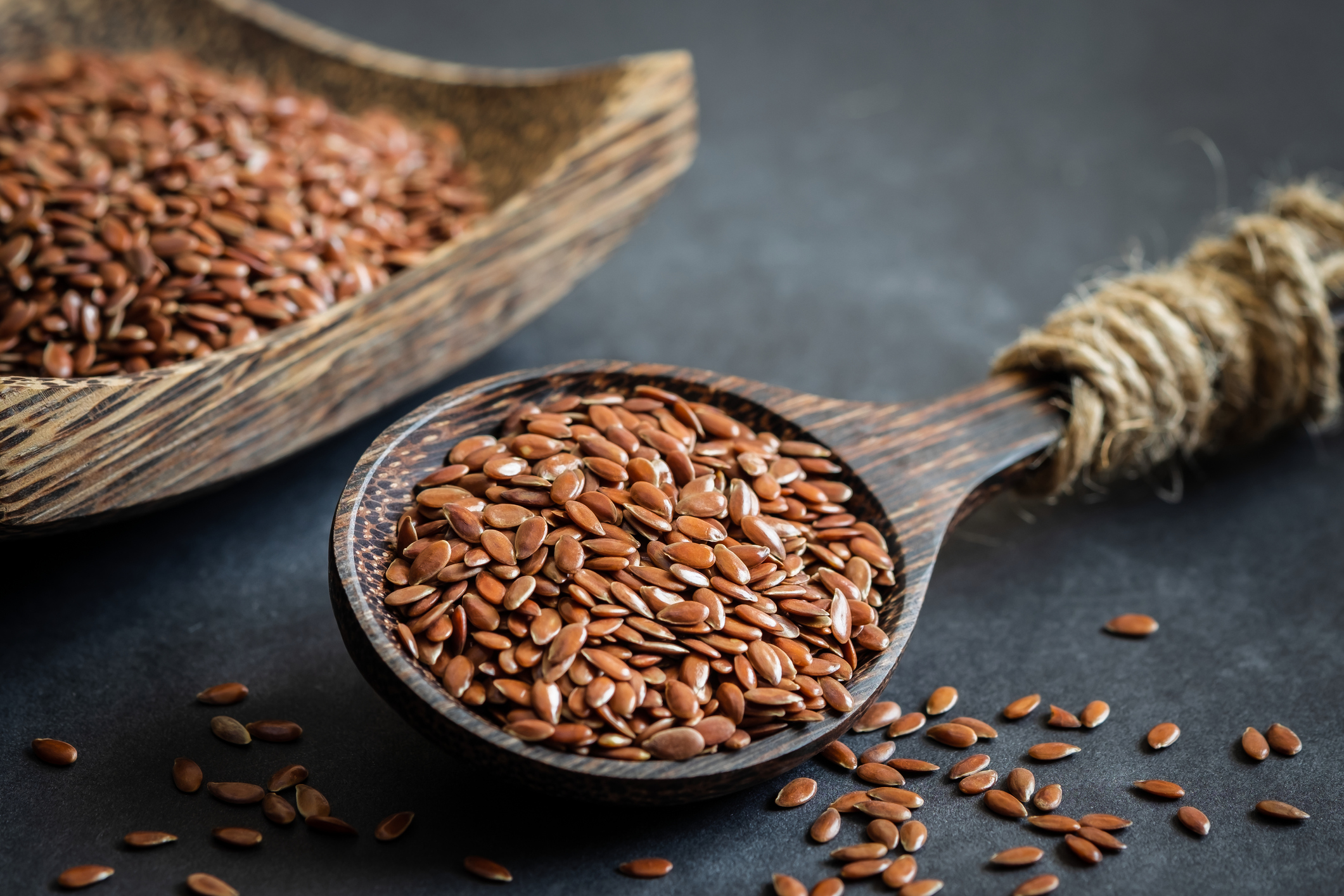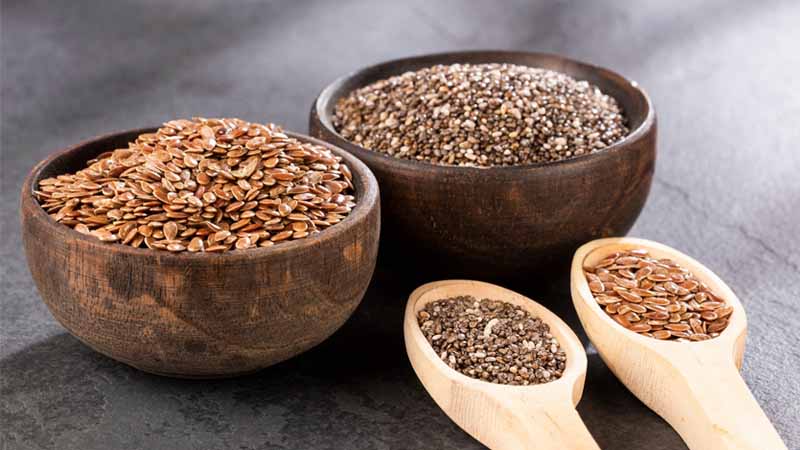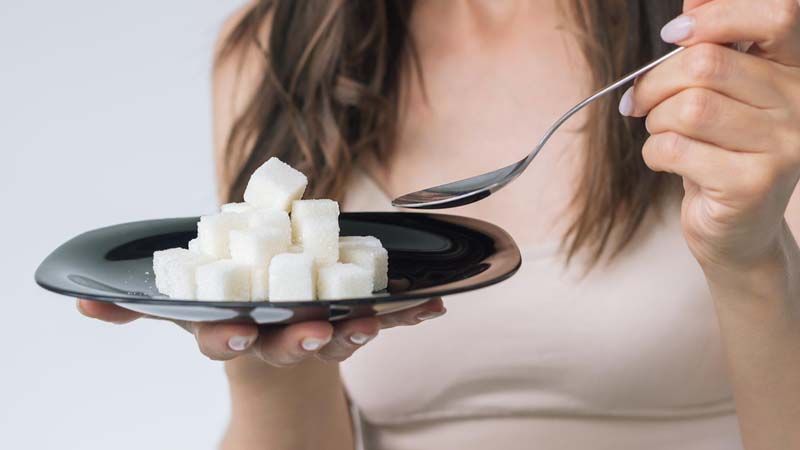Should pregnant women consume flax or chia seeds? Are they safe?
- 41 months ago
WHAT ARE FLAX SEEDS AND CHIA SEEDS?
Flax seeds are big and flat in size. They are also known as linseeds. Generally, they are brown or golden in color. They taste like nuts and have a lot of health benefits. Flax seeds for pregnant women are considered very important. We'll get to know why they are essential and what is their nutritional value as we proceed with this article.
Chia seeds look oval-shaped and are little in comparison to flax seeds. They originate from the chia plant. Generally, they are black or white in color and are also known as Salbaseeds. Chia seeds have a bland taste but have high health benefits. Chia seeds for pregnant women are also essential, like flax seeds.
Let's now look at the nutritional value of both flax and chia seeds, along with their importance.
NUTRITIONAL VALUE OF FLAX SEEDS AND CHIA SEEDS
Flax seeds contain 150 grams of calories, whereas chia seeds contain 137 grams of calories. Flax seeds have 8 grams of carbohydrates, 8 grams of fiber, 5 grams of protein, and 12 grams of fat. On the other hand, chia seeds have 12 grams of carbohydrates, 11 grams of fiber, 4 grams of protein, and 9 grams of fat.
In that case, both the seeds have more or less equal nutritional values that will benefit the body. Both contain a good amount of protein and calories that the body needs to remain healthy.
IMPORTANCE OF FLAX SEEDS
- Aids digestion
- Good for the heart
- Contains antioxidants

1. Aids digestion
Flax seeds hold both soluble and insoluble fibers. Soluble fibers help soften stool to eliminate it quickly, whereas the insoluble fibers stimulate the digestive system and make bowel regulation easier.
2. Good for the heart
The fats in flax seeds help to reduce blood pressure, prevent strokes and reduce cholesterol levels. The consumption of flaxseed powder lowers cholesterol levels by 15% if taken at proper intervals daily.
3. Contains antioxidants
Flax seeds have a high content of antioxidants known as polyphenols. These antioxidants will protect you from heart disease and cancer. They also help to ward off premature aging and neurodegenerative diseases like Alzheimer's.
IMPORTANCE OF CHIA SEEDS
- Reduces inflammation
- Stronger bones and muscles
- Control on the blood sugar levels

1. Reduces inflammation
The antioxidants found in chia seeds help fight inflammation in the body, which can otherwise cause severe health problems like heart disease. Consuming chia seeds regularly will also keep away inflammatory markers that indicate some major illness.
2. Stronger bones and muscles
Chia seeds have nutrients and minerals like phosphorus, magnesium which are good for the bones. They also contain calcium which is required for the proper functioning of the muscles and the nerves in the body.
3. Control on the blood sugar levels
Chia seeds consist of fibers that help to improve blood sugar levels in the body. Thus it helps to reduce the risk of diabetes and metabolic syndrome. Bread containing chia seeds also helps to control lower blood sugar levels, according to researches.
HOW MUCH QUANTITY OF FLAX AND CHIA SEEDS SHOULD BE CONSUMED?
You can consume both the seeds 1-2 tablespoons per day, i.e., approximately 10-20 grams per day. You can have them with smoothies or sprinkle them on top of yogurts. They act as substitutes for eggs in many recipes as well. Altogether, they are very nutritious and can easily be added to your diet.

WHY SHOULD PREGNANT WOMEN CONSUME ANY OF THESE?
Now coming to the part where we are going to discuss why flax seeds and chia seeds for pregnant women are vital components during their pregnancies.
1. During pregnancy, the hormones inside the body can fluctuate, which causes an increase in hunger. Chia seeds help to lessen the feeling of hunger by absorbing the proteins and the water.
2. The fiber and proteins of both the seeds regulate blood glucose levels and prevent gestational diabetes. This is a kind of diabetes that affects most pregnant women.
3. Both flax seeds and chia seeds are rich in omega-3s, which are required during pregnancy because they support fetal brain development and prevent premature birth.
4. Flax seeds have a high amount of calcium in them. Calcium is essential during pregnancy because it helps in the development of the infant's teeth and bones.
Ultimately, the difference between the two seeds is minimal to even count in. The bottom line is to include both the seeds in your diet during pregnancy and even when you want to stay fit and healthy.
Discover new ways of including flax and chia seeds in your meal and eat healthily.








